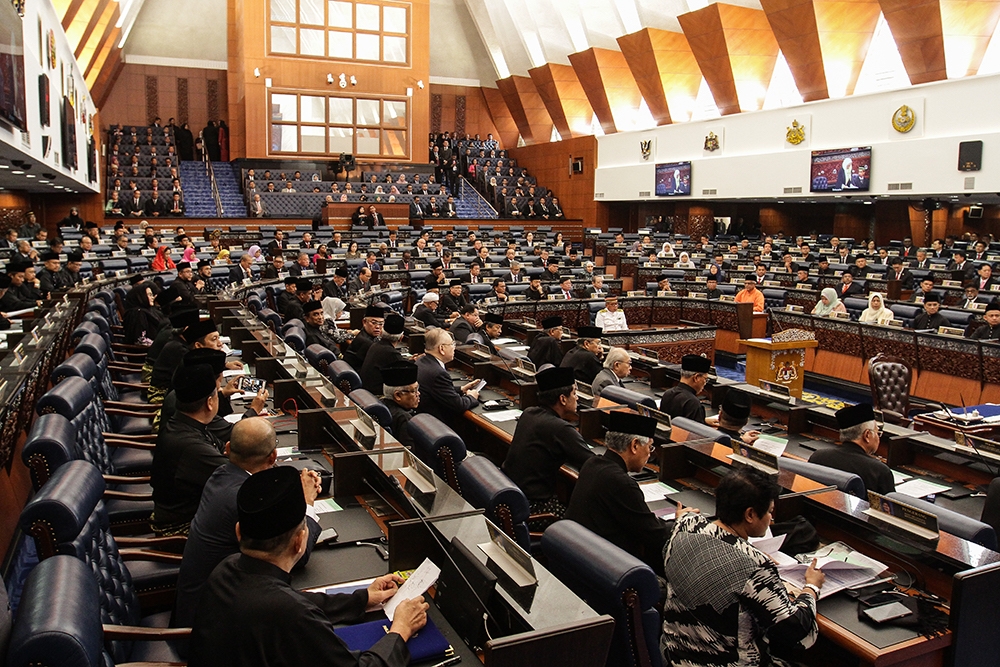MARCH 9 — The role of an Opposition party, according to distinguished Canadian parliamentarian Stanley Knowles, is to check and prod.
But ultimately, it is to replace the government party. He wrote:
[T]he opposition should so conduct itself in Parliament as to persuade the people of the country that it could be an improvement on the government of the day. No one will deny that [the] system works best when there is a change of government at reasonable intervals. (Stanley Knowles, “The Role of the Opposition in Parliament”, Address to the Empire Club of Canada, 21 March 1957, Ontario Woodsworth Memorial Foundation, Toronto, 1957)
It says “at reasonable intervals”. We can therefore agree with Community Communication Department (J-Kom) director-general Mohammad Agus Yusoff who said that in democratic systems a government change is usually done through general elections.
“When the next election comes, hand over the mandate to the people to make a choice,” Agus said.
General elections are therefore the “reasonable intervals” when a change of government can be done. But after the election, as Agus stressed, all parties need to work together to help solve the problems of the people and the country.
“All parties” must refer to the government and the Opposition, the latter being the largest non-government party or coalition of parties in Parliament.
This takes us to the role of the Opposition. Its main role is to question the government of the day and hold them accountable.

The Opposition is presented with ample opportunities to execute the role during parliamentary sessions as provided in Question Time, which now includes Prime Minister Question Time (PMQT) on Mondays, the Yang Di-Pertuan Agong Address debate, Budget debates, debates on legislation, notices of motion and no-confidence motions.
Further opportunities are provided in parliamentary committees which members of the Opposition are also appointed to.
The Dewan Rakyat Standing Orders (SO No. 4A) also recognise a Leader of the Opposition who is elected by the Opposition to be their leader and spokesperson. Although not constitutionally recognised, the Leader of the Opposition is provided with a special salary, entitlements and facilities.
The role and duties of the Leader of the Opposition have been said to include:
• leading the Opposition in parliamentary and policy debate;
• holding the government accountable and presenting the views of an alternative government;
• chairing the meetings of Shadow Cabinet;
• leading and publicising the development of party policy;
• identifying as an alternative Prime Minister;
• leading the party in an election; and
• representing their electorate.
A Shadow Cabinet allows a Shadow Minister to follow closely the areas and responsibilities and activities of government ministers. It also allows the opposition to respond to government policies and initiatives and offer alternatives — like a Shadow Budget — to the people.
In summary, as Knowles put it, the Opposition should conduct itself in Parliament to persuade the people of the country that it could be an improvement on the government of the day.
Be the alternative, not plan to topple the government. It is not normal or a new normal.
*This is the personal opinion of the writer or publication and does not necessarily represent the views of Malay Mail.





















